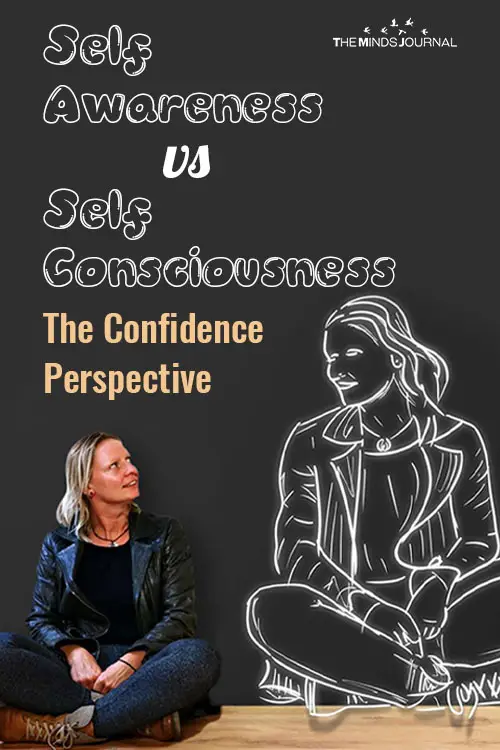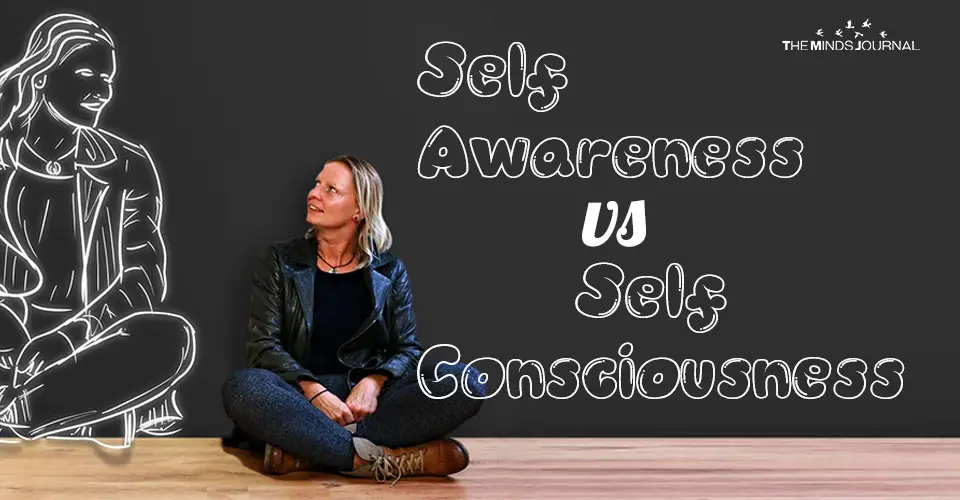What is self-awareness and why is it important? How do you develop self-awareness?
Everyone is talking about self-awareness these days. It seems to be the latest fascinating buzzword, having its 5-seconds-of-fame moment before the world moves on to the next one.
But from what scientists tell us—it’s not all a cool fad. In fact, it has very tangible benefits—for our mental, physical health, and nonetheless—our self-esteem. In a nutshell, it’s a super-power, which we all need to develop.
But how?
So, to start from the beginning, self-awareness is “how an individual consciously knows and understands their own character, feelings, motives, and desires.” There are many advantages to cultivating it.
Research has found that when we are able to see ourselves more clearly, we are more confident, creative, efficient, and become better at making decisions, at relationships and at our jobs.
So, greater self-awareness gives us a deeper insight into us—i.e. self-knowledge.
And we generally think we are pretty good at knowing ourselves, right? But of course— it’s you. If you don’t know yourself, who does?
Interestingly enough, though, studies have discovered that although we all believe to be self-aware, only 10-15% of us actually are.
Furthermore, there are 2 types of self-awareness, psychologists tell us—internal and external.
- The Internal one is about understanding our inner landscapes (our feelings, passions, and drivers), how well we fit into our environments and the impact we are making on others.
- The External kind is about how we perceive others to see us.
So, it’s not hard to see that internal self-awareness links to greater life satisfaction, happiness, self-esteem, and less anxiety, and depression. The more you nurture it, the better.
Too much external self-awareness (and low internal), in contrast, can be counter-helpful. It can make us too self-conscious and willing to please others, even at the risk of going against our own interests or careers.
So, how do we get more of the good stuff—i.e. can we become more self-aware and find the best balance between the internal and external types?
Luckily, we are far from option-less. The best ways to get to know ourselves are though reflection, monitoring our internal dialog and thoughts, and seeking feedback from people we can trust.
Related: 9 Steps That Can Build Your Self-Confidence Like Never Before
And rather than beating ourselves up with the Why-s (why we failed to ace the presentation, to keep our partner, to get the job, to be the parent we want to be), one should start the self-awareness quest with a different question: What?
What can you do to improve yourself, to change your situation, to reach your goal? The “Why”-investigations are not good, as throw us into a self-blaming loop and leave us with a painfully negative aftertaste. The “Whats,” in comparison, spring us into action, help us come up with a plan and the steps on how to make it all better.
So, self-awareness seems to be ticking a lot of boxes when it comes to enhancing our confidence. It can make us wiser, acceptive of our weaknesses and willing to draft a better future for ourselves.
Here is the tiny caveat, though.
Heightened self-awareness (a.k.a self-consciousness) is bad for your self-esteem.
In fact, research has found that if you have low-self-esteem to start with, becoming more self-perceptive can exacerbate the gap between who you believe you are and who you want to be. As a result, you may feel much worse.
Generally, science confirms, when we are pre-occupied with ourselves and have low confidence, we may become increasingly sensitive to others’ opinions of us. So much, that it can escalate into acute social anxiety, shyness, aversion to meeting new people, and inability to unfold our full potentials.
The more unhappy we become with ourselves, the more space will widen between our Real and Ideal Self.
Simply put, self-consciousness can be a real confidence and happiness downer.
So, what next then?
Perhaps the most liberating thing to realize is that people really don’t care, nor notice us as much as we believe. It’s a well-known bias in psychology, called “the spotlight effect”—the feeling that everyone is watching and criticizing us.
A famous study a few years back dispelled these beliefs. A student wore a Barry Manilow T-shirt (highly embarrassing to college population) to class and less than 50% recalled his outfit.
That is, we are not as important to others as we are to ourselves. And that’s great news. People are too busy being focused on themselves to pay too close attention to us.
An additional step we can take to dial down on our self-consciousness is to practice what’s called “a mental shrug.” We must stop searching for validation of our negative thoughts from others, but rather—separate ourselves from our thoughts.
When we feel them creeping into our minds, just shrug them off. They are not representative of who we truly are.
So, here is the recap.
Self-awareness is generally good—and for your self-esteem. Self-consciousness—not quite.
Related: How To Boost Your Self-Esteem Quickly: 12 Simple Tips
Of course, it’s great to know what makes you tick and drives you to more forward. But if you become too tangled up in the what-others-may-think mentality, then you’ve reached the Land of self-consciousness and must turn back.
A quote I came across recently eloquently sums it up:
“A caterpillar who seeks to know himself would never become a butterfly.”
Watch out the video to understand the importance of self-awareness.
For more advice on how to become more confident and live a more fulfilling life, join Evelyn’s Facebook page here or visit her website http://www.evelynmarinoff.com/.
Written by Evelyn Marinoff
Originally appeared in Evelyn Marinoff









Leave a Reply
You must be logged in to post a comment.